May 17: E-Stories
RUattacksUA CombatSit BehindLines InRussia Xi Allies A&P Noel Kokcharov UKDef CDS ISW KyivIndie Zelensky VChKOgpu Mooney Greene Lautman WSJ Morton Georgia Amanpour Kaufmann
Catching up…
EA Worldview’s Ukraine Up-date- hop over to Scott’s amazing hourly Ukraine up-date page. I’ll fill in with some bits and bobs.
Evacuation of Vovchansk
Stories we’re following…
Minister: Russia captures, shoots civilians in northern Vovchansk. Russian forces are taking Ukrainian civilians captive and preventing their evacuation in the embattled northern part of Vovchansk in Kharkiv Oblast, Interior Minister Ihor Klymenko said on May 16.
Governor reports 25 civilian casualties, near 8,000 evacuations amid Russian assault on Kharkiv Oblast. Almost 8,000 civilians have been evacuated amid Russia's offensive in northern Kharkiv Oblast, which has killed at least one civilian and injured 24 others over the past day, Governor Oleh Syniehubov reported on May 15.
Russian attacks against Ukraine kill 4, injure 41 over 1 day. Russia targeted a total of 10 Ukrainian oblasts — Sumy, Luhansk, Poltava, Dnipropetrovsk, Chernihiv, Zaporizhzhia, Mykolaiv, Donetsk, Kharkiv, and Kherson. Casualties were reported in the latter five regions. Russian attacks targeted Kharkiv with cluster munitions, injuring 6 people.
Vovchansk from above. Heavy fighting is on-going in the city.
Energy Ministry warns of blackouts due to 'significant' power shortage. Russian attacks and cold weather have caused a "significant capacity deficit" in Ukraine's power system, leading to blackouts and energy restrictions for consumers across the country, the Energy Ministry reported on May 15.
Ukraine implements rolling blackouts after recent Russian attacks on energy infrastructure. Ukraine implemented rolling blackouts on May 15 due to power shortages caused by Russian attacks, Ukraine's state-owned energy operator Ukrenergo announced.
Kyiv Independent: Dmytro Kozatskyi, call sign "Orest," is a Ukrainian soldier who formerly headed the press service of the Azov regiment. He was based in Mariupol when Russia launched its full-scale invasion of Ukraine on Feb. 24, 2022, and soon ended up at the last Ukrainian stronghold in the city — the Azovstal steel plant. Thanks to the photographs he took inside the bunkers of the plant, the world was able to witness the horrors in which both soldiers and civilians had to endure almost non-stop Russian bombardment. In this video, Kozatskyi breaks down his famous photographs and shares his memories about the Russian siege of Mariupol.
Combat Situation Update
General Staff: Ukraine thwarts Russia's attempts to gain foothold in Vovchansk. "The enemy's plans to advance deeper into the city of Vovchansk and gain a foothold there were thwarted," Ukraine's General Staff said on May 16.
Commander in Chief Syrskyi said that Russia expanded the zone of active hostilities by almost 70 kilometers, thus trying to force Ukraine to use an additional number of brigades from the reserve.
"The enemy launched an offensive well ahead of schedule when he noticed the overturning of our troops, however, he failed to break through our defenses," he added.
Stanislav Osman, serviceman within the 24th Aidar Batallion, reports that Russian activity on the border with the Sumy region. "They are planning something and pulling equipment closer to the border. We are preparing."
ISW: Russian forces recently seized Lukyantsi (northeast of Lyptsi) and advanced closer to Lyptsi amid continued offensive operations in the area on May 16.
Russian sources claimed that Russian forces advanced up to 1.2 kilometers in depth near the southern outskirts of Hlyboke (north of Lyptsi), although ISW has not yet observed evidence of further Russian gains in the area.
Military: Ukraine has not lost ground near Robotyne in Zaporizhizhia Oblast. Ukrainian troops have not lost ground near the village of Robotyne in Zaporizhzhia Oblast, Dmytro Lykhovii, General Staff's spokesperson told on the national television on May 16.
NATO top commander says Russia has insufficient numbers for breakthrough in Kharkiv Oblast. Echoing comments from President Volodymyr Zelensky, who said earlier in the day that the situation in Kharkiv Oblast was "difficult" but "under control," General Christopher Cavoli expressed confidence that Ukraine would be able to withstand the assault.
"For the first time since the start of the war, none of the brigades complain that there are no artillery projectiles. And this has been happening for the last 2 months. However, we still have to work a lot. The Czech initiative will go ahead. We are negotiating with all partners about money," Zelenskyi said.
Zelensky: Ukraine can prevent occupation of Kharkiv with 2 Patriot systems. When asked if the U.S. is to blame for what is happening in Kharkiv Oblast, President Volodymyr Zelensky said, "It is the world's fault."
President Zelensky’s evening address on the current situation on various fronts.
Source: Ukrainian drones attack Russian defense manufacturer's facilities in Tula. Drones operated by Ukraine's military intelligence agency (HUR) hit production facilities of the state-owned Russian weapons manufacturing company "Basalt" in the city of Tula overnight on May 16, a military intelligence source told the Kyiv Independent.
Russian media: Novorossiysk port, Tuapse oil depot hit in overnight attack. Drones and missiles struck an oil refinery and seaport in the Russian city of Novorossiysk in the early hours of May 17, causing explosions and power outages, the Russian Telegram news channel Astra reported.
Source: Ukraine's military intelligence drones strike oil depot in Russia's Rostov region. Drones from Ukraine's military intelligence (HUR) attacked an oil base in the Rostov region of Russia overnight, a source in the agency told the Kyiv Independent on May 15.
A Ukrainian missile attack on Belbek Air Base and its surroundings during the night of May 14-15, resulted in significant damage and casualties, Russian channel ASTRA found out.
At Belbek, the strike destroyed two MiG-31 interceptor fighters and a fuel and lubricants warehouse, injuring 11 Russian servicemen. Later, a missile hit an S-400 Triumph air defense system near the village of Vyshneve north of Belbek Air Base, causing the system to catch fire, killing two servicemen, and injuring two others.
While the Russian Ministry of Defense claimed that air defense systems intercepted 10 ATACMS missiles over Crimea and did not report any losses or damage, local sources and military correspondents confirmed casualties and destruction from the attacks.
New York Times: NATO member states considering sending military instructors to Ukraine. Some NATO member states are discussing the possibility of sending military instructors or contractors to Ukraine to train Ukrainian troops and assist with equipment repairs, the New York Times reported on May 16.
Behind the Lines
Reuters: G7 will support using frozen Russian assets revenue to fund Ukraine. The G7 finance ministers are set to meet on May 24, where they will work out the details to come to a final decision before a summit in Italy in June.
Reuters: US warns Raiffeisen that access to dollar system could be restricted due to Russia presence. Austria's Raiffeisen Bank International (RBI) was warned by the U.S. Treasury that its access to the U.S. financial system could be curbed due to its continued presence in the Russian market, Reuters reported on May 15.
Medvechuk's yacht officially transferred to Ukrainian state. The Royal Romance, a 92-meter (300-foot) luxury yacht worth an estimated 200 million euros ($218 million), was seized by Croatian authorities in March 2022.
Chechnya’s Kadyrov regime has looted parts of the grain-harvesting industry in Ukraine’s occupied Kherson region by forcing local farmers to sell their product at below-market prices or chasing them off their land completely. In October 2022, The Financial Times reported that a government-run firm resells grain stolen from Ukrainian farmers’ storage facilities and crops harvested from their lands to buyers in Russia, Syria, Turkey, and Iran. iStories describes how Elbek Zaiev, a man with connections to the Kadyrov regime, founded a company called Agro 24 in a process that has attracted many other Russian nationals to Kherson for business that’s suspiciously conducted primarily in cash.
Bloomberg: Big European lenders continue to operate hefty, increasingly profitable units in Russia despite public pledges to wind them down. The combined head count of the five European Union banks with the largest Russia operations has fallen by just 3% since the invasion, and earnings have roughly tripled, thanks to the fat interest rates they’re getting on their piles of cash stuck in the country.
Significant rise in hostile Russian activity in Ireland—John Mooney
Russia’s intelligence services regularly use Dublin and Belfast as logistical hubs for sending agents into Britain, France and sometimes the Netherlands. Security officials believe this traffic will now increase.
The security services suspect Russia has already established networks of agents who live under assumed identities across Ireland following a significant decrease in the number of accredited Russian diplomats operating from the embassy on Orwell Road in Dublin.
Russia is also using Irish IP addresses to mount cyberattacks on countries in the Baltics, including Estonia. Part of the unfolding threat concerns the spread of disinformation.
Meanwhile in Russia
Putin and Xi Jinping signed an agreement on deepening bilateral strategic partnership. According to Putin, the Russian Federation and China have formed a portfolio of 80 large joint investment projects in various areas.
Olga Lautman: War criminal Putin while in China gave the green light to China to take over the Russian car market. Sounds like more sanctions evasion schemes.
“We welcome the active expansion of the presence of Chinese automakers and household appliance manufacturers on the Russian market”
WSJ: Russia tested space-based anti-satellite weapon with potential nuclear capabilities in 2022. The officials said that Russia had launched a satellite into space in February 2022 to test components for a potential anti-satellite weapon that would carry a nuclear device. However, the satellite that was launched doesn’t carry a nuclear weapon, the Wall Street Journal reported.
A new investigation published by Mediazona describes how homeless Russians are increasingly turning to military service in Ukraine for a lack of alternatives. In January 2023, Russia’s government rejected an initiative to subsidize free mental healthcare for combat veterans. Officials dismissed the measure as “excessive,” apparently relying on psychoanalytic expertise claiming that U.S. experience with shell-shocked soldiers doesn’t apply in Russia because “the Americans wage unjust wars on foreign soil.”
Reuters: Sri Lanka to send delegation to return mercenaries fighting on behalf of Russia. According to reports, a top official in the Sri Lankan government stated that the government will send a delegation to Russia to investigate the fate of hundreds of nationals reportedly fighting in the war in Ukraine.
The Kremlin administration has instructed Russian state-controlled and pro-Kremlin media outlets to emphasize the new appointees’ long record of service and “battle-tested” management skills while ignoring unpleasantries like the corruption scandals that have plagued Energy Minister Sergey Tsivilev’s family and Transport Minister Roman Starovoyt’s close ties to the billionaire brothers Arkady and Boris Rotenberg, who happen to be two of Putin’s closest friends.
Russians may be prohibited from selling SIM cards without presenting biometrics. Such a measure to combat the gray market is being discussed by the FSB and the Ministry of Digital Development, sources close to telecom operators told Kommersant.
Also, according to them, the authorities want to limit the sale of cards to communication shops, MFCs and branches of Russian Post. In addition, cards can begin to be sold through the Gosklyuch application, in which it is necessary to sign an agreement in electronic form.
Russia has been bolstering its military presence in Libya for the past few months, according to a joint investigation from the independent outlet Verstka and the All Eyes on Wagner project. The Kremlin appears to be shipping more military equipment to Libya and the surrounding region and redeploying regular troops disguised as mercenaries, along with recruits from Wagner Group’s Africa operations.
Allied Support
Pentagon: US 'working hard' to rush aid to Ukraine, battlefield situation 'concerning.' "But all accounts are that they (Ukraine) continue to take measures to defend their territory," Pentagon spokesperson Pat Ryder said, adding that the U.S. is going to do "everything we can to get them the critical munitions and supplies that they need."
Estonian parliament passes bill allowing use of frozen Russian assets for war reparations for Ukraine. "We're one step closer to setting a historic precedent in Europe," said Prime Minister Kaja Kallas.
US imposes sanctions on Russians who helped transport weapons from North Korea to Russia. With Russia's military stocks running low and domestic production capacity simultaneously hampered by Western sanctions, North Korea has been shaping up as Russia's leading weapons supplier, reportedly providing Moscow with extensive military packages, including ballistic missiles and over 3 million artillery shells.
Lithuania intends to hand over 6 Amber-1800 surveillance radars to Ukraine, German Defense Minister Pistorius said. It is unknown when these will be delivered. The Amber-1800 has a range of up to 400km at an altitude of 10km.
New Zealand announces new sanctions over Russia's war against Ukraine. The restrictions target actors purportedly involved in the transfer of North Korean arms to Russia for use against Ukraine and Iranian actors providing military aid to Moscow.
Denmark announces more than $815 million in new military assistance for Ukraine. "With today's donation, we meet Ukraine's urgent need for more air defense, artillery, and ammunition," said Foreign Minister Lars Lokke Rasmussen.
Media: EU ambassadors agree on 'broadcast ban' of key Russian propaganda outlets. The move would reportedly impact Rossiyskaya Gazeta, Voice of Europe, RIA Novosti, and Izvestiya, said RFE/RL Europe Editor Rikard Jozwiak.
Moldova to hold referendum on joining EU in October. The European Council agreed to open accession talks with Ukraine and Moldova last December. Chisinau has moved closer to Europe over recent months amid repeated warnings that the Kremlin is attempting to carry out a destabilization campaign inside the country's borders.
Reuters: Finland plans to use reservists to patrol border with Russia. Finland is planning to change its conscription rules to allow reservists to help patrol the border with Russia in the case that there is a sudden wave of migrants, Reuters reported on May 15.
Really interesting video.
Media: 50 states confirm participation in Ukraine's peace summit in Switzerland. "We're working intensively on the diplomatic front to convince those who haven't yet announced their participation," Nicolas Bideau, head of communications at the Swiss Foreign Ministry, told Swiss public radio RTS.
This is why the West needs to continue its support for the defence of Ukraine. A peace conference per se will not bring peace, but it will be an opportunity to look to Ukraine’s future. It may also be a psychological boost for Ukraine and all nations that support its defence.
Shares in Georgia's largest banks plummet after US threatens sanctions against top Georgian officials. London-listed shares in the two banks, TBC and Bank of Georgia, plummeted to their lowest single-day declines since the spring of 2020, at the height of the Covid-19 pandemic.
Channel 4: Why is Georgia’s ruling party so intent on adopting ‘foreign influence’ law?
FT: EU to freeze Georgia's membership bid if 'foreign agents' law enacted. The bill's introduction into the parliament has led to widespread protests across the country and criticism from the EU and the U.S.
Christian Amanpour: “The way and the place where we can reverse all of this is the elections in October.” Georgia’s president @Zourabichvili_S tells me her plan to overturn the controversial ‘foreign agent’s bill.’
Sylvie Kaufmann: European leaders need to wake up — the world has changed
When Xi Jinping came to Paris five years ago for a bilateral visit, Emmanuel Macron invited Angela Merkel, then the German chancellor, and Jean-Claude Juncker, then president of the European Commission, to join him for the talks. They met China’s strongman as a European team. Last week Macron hosted Xi again, but this time the only German at the table was Juncker’s successor, Ursula von der Leyen. Chancellor Olaf Scholz chose to stay away.
Berlin’s immediate reaction to Moscow’s assault on Ukraine in February 2022, reflected in the chancellor’s bold “Zeitenwende” speech signalling a “new era”, was rightly commended. Germany had invested so much in its relationship with Russia that only a clean break, though painful, could be envisaged. Within a year, Germany got rid of its unhealthy dependence on Russian gas. A question arose: would the EU’s biggest economy follow the same logic in its relationship with China? Scholz’s record so far suggests otherwise.
While the EU has hardened its stance on China, the chancellor has taken a go-it-alone approach, declining Macron’s suggestion of a joint visit to Beijing in 2022. Last month, he did not brief his colleagues at the European Council on his second trip to China when they met in Brussels the day after his return. He met with Xi for more than three hours but made few public statements, marked by a conciliatory tone.
The notable absence of the ministers of foreign affairs and of the economy from the chancellor’s delegation, which included 12 representatives of major German companies, was a message in itself: the two ministers, both members of the Greens, are much more hawkish on China — and on Ukraine. This points to the political nature of the debate on China policy in Germany. As was the case for Russia, Scholz’s Social Democrats, or at least a leading strand of the party, seem stuck in a 20th-century vision of engagement through economic relations, a legacy of Willy Brandt’s Ostpolitik. “Germany’s structural economic dependence on China is at the heart of this relationship”, notes Abigaël Vasselier, an expert at Merics, a Berlin-based think-tank on China. “Scholz led this visit as if Covid and the war in Ukraine had not happened, as if strategic dependence was not an issue”.
This vision omits another structural change taking place in the global economy. In a report published just days before Scholz’s trip to China, Allianz, the German insurance company, warned that Germany and China were moving “from complementarity to substitution”, with some Chinese companies moving up the value chain and surpassing German businesses.These are the kind of changes that Macron had in mind when, in his customary dramatic way, he proclaimed in a speech last month that the EU was in “mortal” danger. Like Scholz and Merkel, the French leader long held the belief that engaging with Vladimir Putin was the right recipe, until events forced him to face the reality. Today he says a more radical shift is needed, on all fronts.
A tougher stance on China is easier for France, whose companies have a lighter presence there than Germany’s. But Macron’s attitude to both China and Russia, very much in line with the European Commission’s current views, stems from the same philosophy: the world has changed, mostly for the worse, and Europe needs to be much more forceful to counter those negative trends.
Included in such trends are two big powers, China and the United States, that “don’t respect the rules” of international trade any more. Macron preaches “strategic ambiguity” with Russia, raises the possibility of sending troops to Ukraine and promotes stronger European defence that could only be financed by Eurobonds. Europe must protect itself and think strategically.
Most of this is anathema to Scholz and some other European leaders. There is room for debate on Macron’s ideas — while France is a nuclear power, it does not have Germany’s economic leverage. But clinging to an outdated paradigm will not impress Putin, Xi or Trump, freed from the yoke of the old international order.






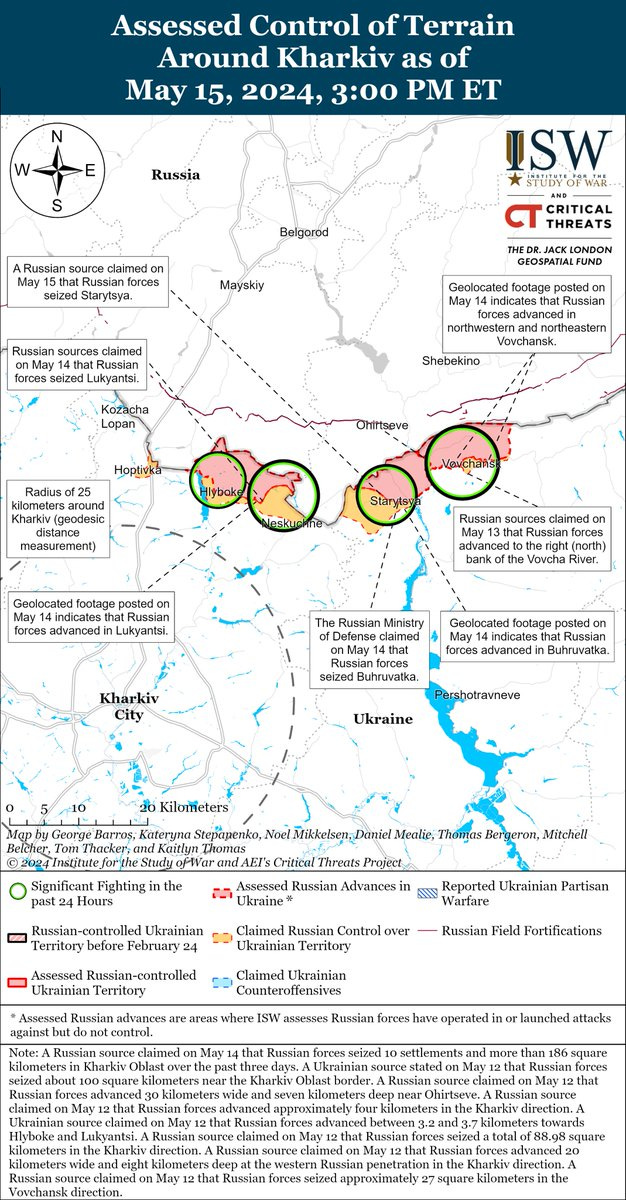


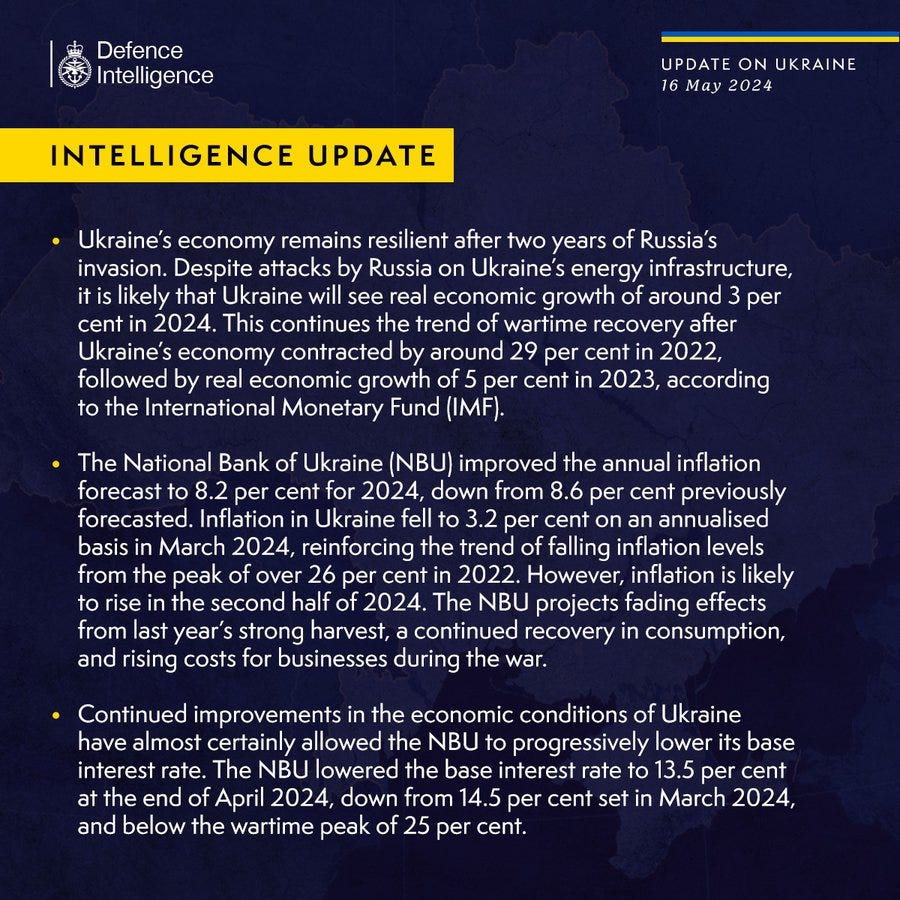



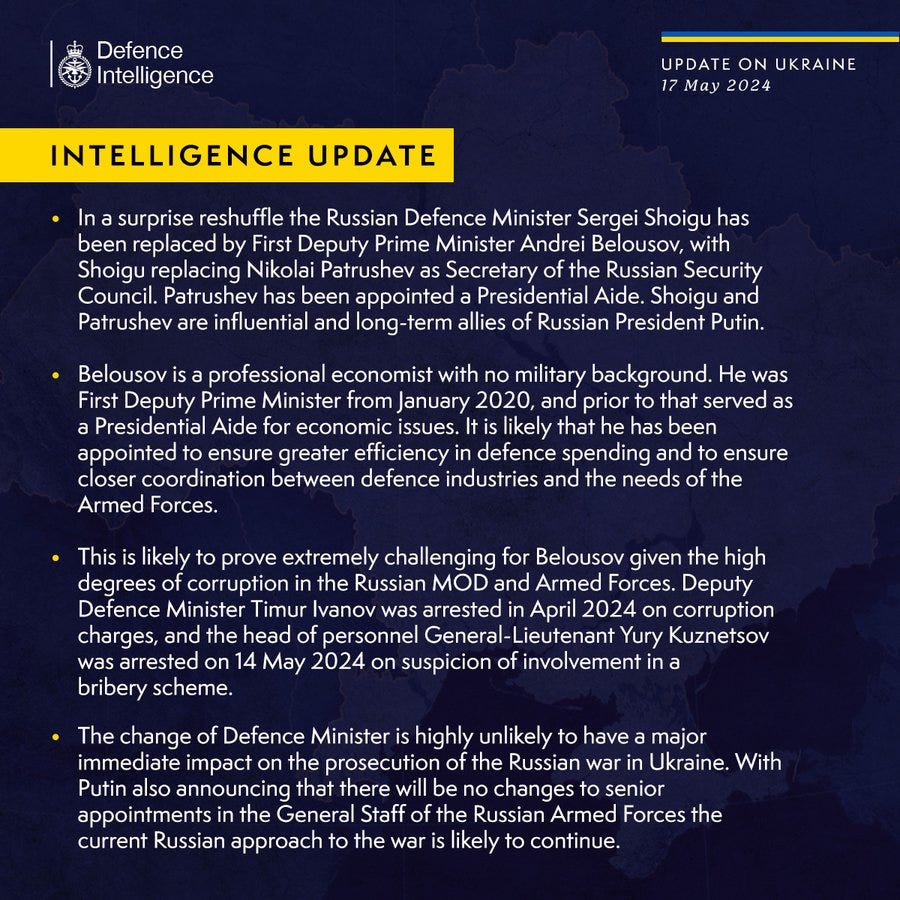

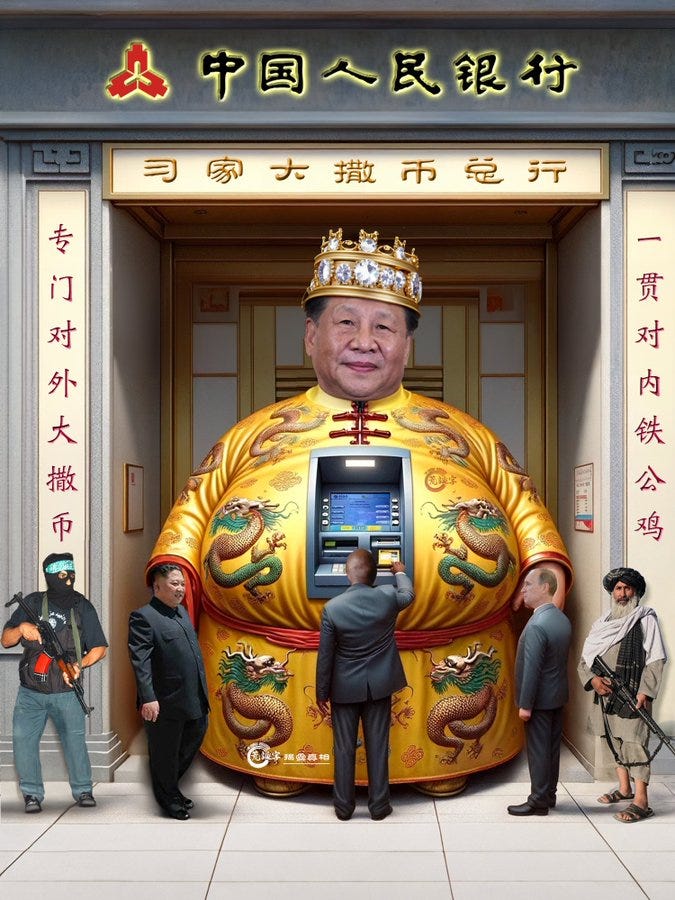


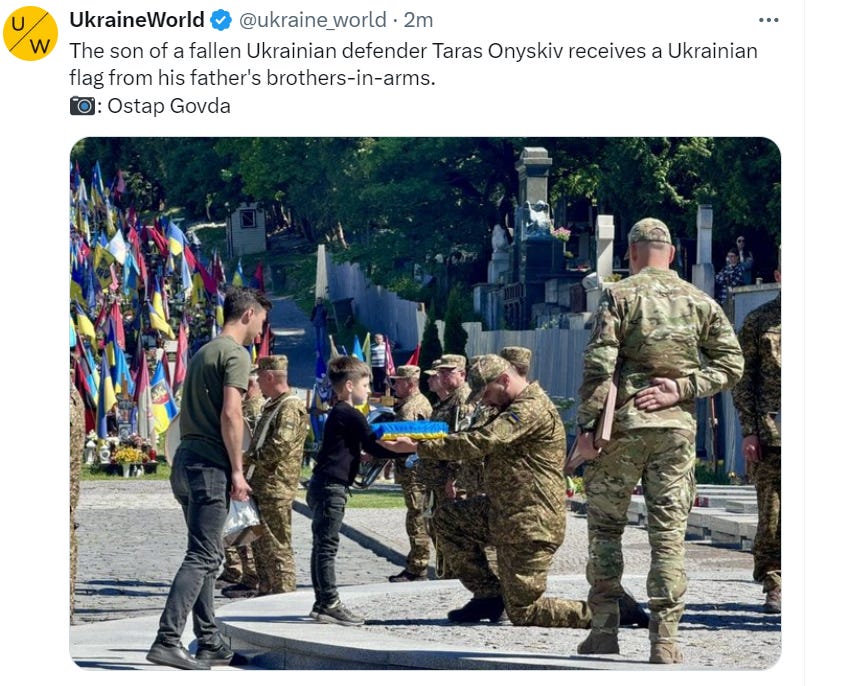
The cartoon of Xi - brilliant!!!